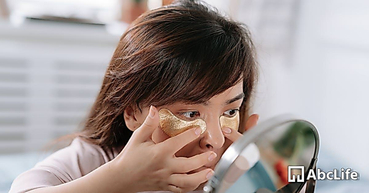Self-care is critical for leading a balanced and healthy lifestyle. Taking time for yourself, prioritizing your needs, and engaging in activities that bring you joy and relaxation are all part of it. Self-care can help you reduce stress, improve your mental health, and improve your overall well-being. In this article, we'll go over 10 expert-recommended self-care tips that you can incorporate into your daily routine to improve your life and achieve holistic wellness. We've got you covered for everything from exercise to meditation! Read on to learn more.
Take Time for Yourself

Self-care is critical for your mental and physical health, and taking time for yourself is one of the most effective ways to practice it. Taking time for yourself, whether you're a busy mom or a workaholic, can help reduce stress, boost your mood, and improve your overall well-being.
There are numerous ways to devote time to yourself, including reading a book, going for a walk, practicing yoga or meditation, or simply sipping a cup of tea in silence. Find activities that you enjoy and that allow you to relax and recharge. Setting boundaries and saying no to things that don't serve you or that you don't enjoy is also important. Remember that taking care of yourself isn't selfish; it's essential for your health and happiness.
Practice Meditation and Mindfulness

It's easy to get caught up in the hustle and bustle of our daily lives in today's world, leaving us feeling overwhelmed and stressed out. Meditation and mindfulness, on the other hand, can be a great way to take care of ourselves and improve our overall well-being.
To calm our minds and reduce stress, we focus on our breath or a specific object during meditation. This practice has been shown to improve sleep, lower blood pressure, and reduce anxiety. In contrast, mindfulness entails being fully present in the moment and accepting our thoughts and feelings without judgment. We can learn to be more compassionate to ourselves and others, as well as to be more grateful for the present moment, by practicing mindfulness.
It is as simple as setting aside a few minutes each day to sit quietly and focus on our breath or surroundings to incorporate meditation and mindfulness into our daily routine. There are also a plethora of apps and guided meditations available online to assist us in getting started. We can reduce stress, improve our mental health, and ultimately live a happier and more fulfilling life by prioritizing self-care and taking the time to meditate and be mindful.
Why Exercise Regularly is Important
Regular exercise is an important part of self-care because it benefits both your physical and mental health. Physical activity can assist you in maintaining a healthy weight, improving your cardiovascular health, strengthening your muscles and bones, boosting your immune system, and lowering your risk of chronic diseases. Exercise also causes the release of endorphins, which are feel-good chemicals in the brain that can improve your mood, reduce stress and anxiety, and improve your sleep quality.
To make exercise a habit, choose a physical activity that you enjoy and incorporate it into your daily routine. To reap the benefits of exercise, you don't have to spend hours at the gym or engage in high-intensity workouts. Begin by going for a brisk walk, doing yoga or stretching exercises at home, or enrolling in a dance class. To challenge yourself and achieve your fitness goals, gradually increase the frequency and intensity of your workouts over time.
Eat a Balanced and Nutritious Diet
A nutritious and well-balanced diet is essential for our overall health and well-being. It not only ensures that our bodies get the nutrients and vitamins they need to function properly, but it also helps us maintain a healthy weight, prevent chronic diseases, and increase our energy levels.
A variety of foods, such as fresh fruits and vegetables, whole grains, lean proteins, and healthy fats, should be included in our meals to achieve a balanced and nutritious diet. It is also critical to limit our consumption of unhealthy foods high in saturated and trans fats, added sugars, and sodium.
While following a healthy eating plan may appear daunting, it is critical to begin small by making gradual changes to our diet. This can include swapping unhealthy snacks for fruits and vegetables, eating more plant-based meals, and cooking at home more frequently. These small changes, when implemented consistently, can lead to significant improvements in our health and well-being.
Socialize and Connect with Others
Socializing and connecting with others is an essential component of self-care that is frequently overlooked. We are social beings, and having a network of friends, family, and peers to lean on is critical for our emotional and mental health.
Connecting with others can provide us with a sense of belonging, purpose, and joy. Making new connections and meeting new people can lead to new opportunities and experiences.
However, in today's fast-paced world, finding time to socialize and connect with others can be difficult. As a result, it's critical to prioritize it by planning regular outings with friends, attending social events, joining clubs and organizations, and volunteering in the community.
Keep in mind that socializing does not always have to entail going out or spending money. Simply having a conversation, calling a friend, or sending a message or email can help you socialize and connect with others. The key is to make an effort to cultivate and sustain relationships with those who are most important to you.
Get Enough Sleep
Sleep is a necessary part of our lives and is essential for our physical and mental health. Getting enough sleep is an important self-care tip that can have a big impact on our overall happiness. The recommended amount of sleep for adults is 7-9 hours per night, and it can improve cognitive functioning, memory retention, and mood regulation.
Our bodies and minds can suffer from fatigue, low energy levels, decreased productivity, and increased stress when we don't get enough sleep. Obesity, diabetes, heart disease, and mental health disorders can all be exacerbated by a lack of sleep.
Establishing a consistent sleep schedule, limiting caffeine intake, avoiding electronic devices before bedtime, and creating a sleep-conducive environment with a comfortable mattress, pillows, and temperature-controlled room are all important steps toward improving your sleep quality.
Getting enough sleep is one of the most important self-care tips for bettering our lives, and it's critical to prioritize our sleep habits for optimal physical and mental health.
Engage in self-reflection and goal-setting
Self-reflection is an essential component of self-care. Reflecting on your personal growth, accomplishments, and challenges allows you to gain insight into your own thoughts and behaviors. It also assists you in identifying the things that are preventing you from being your best self. Every day, set aside some time to reflect on your experiences and evaluate your feelings and actions.
Goal-setting can assist you in charting a clear path to your desired outcomes in life. Begin by identifying your goals in various areas of your life, such as health, career, and relationships. Set realistic and attainable goals that are consistent with your values and beliefs. Breaking down your goals into smaller, more manageable steps can help you stay on track and progress toward your larger goals. Celebrate your accomplishments and revise your goals as needed.











